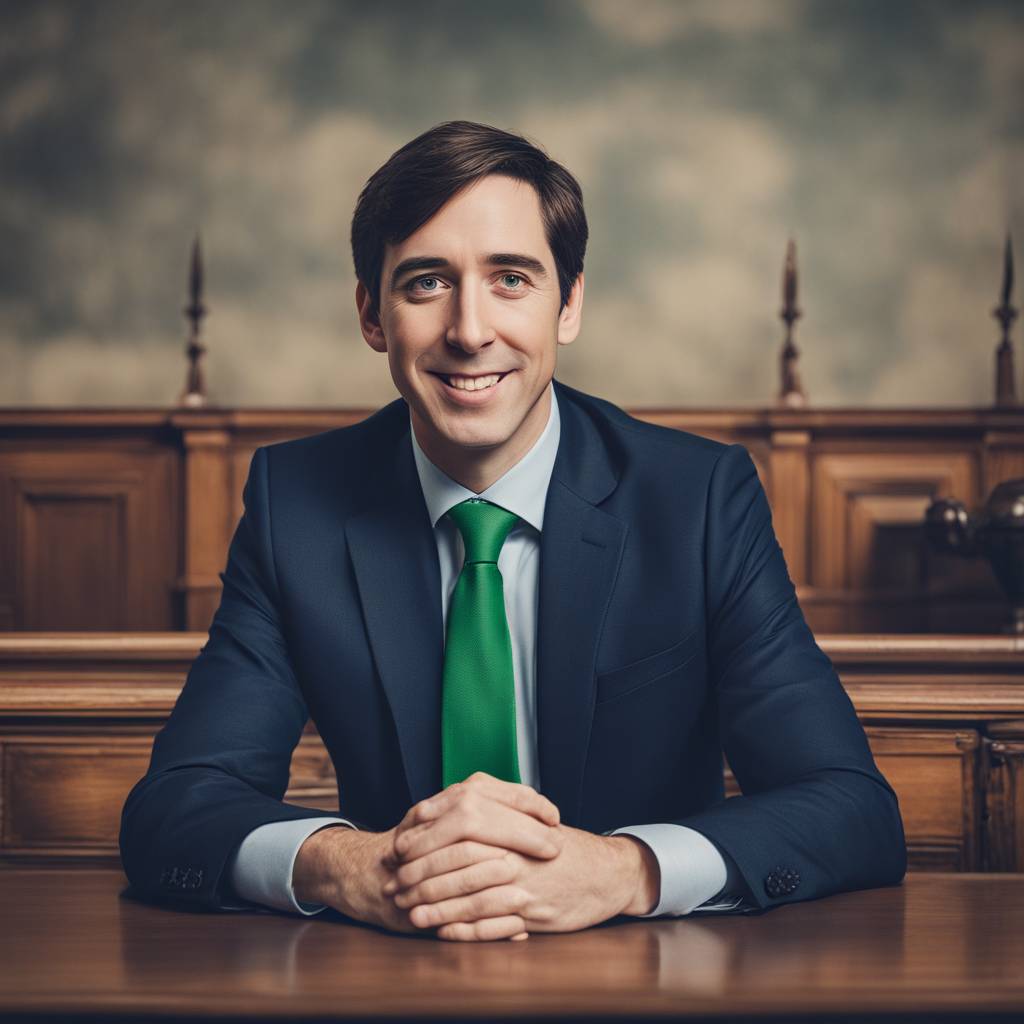Simon Harris dropped out of university at the age of 20 to take on a job as a parliamentary assistant to an Irish senator. This decision marked the beginning of his swift rise in politics. At 37, he is now poised to become the youngest head of government in the Republic of Ireland. Despite his young age, Harris has accumulated significant political experience throughout his career, which has been described as meteoric. However, he is taking on this leadership role at a challenging time for his center-right party, Fine Gael, as they have struggled in the polls.
With a general election scheduled for March 2025, Harris will have to work to revive Fine Gael’s fortunes, especially in the face of growing support for left-wing party Sinn Féin. Harris’s ascent to the top leadership position in Fine Gael was unexpected, following the resignation of his predecessor, Leo Varadkar. Despite not having a national public endorsement, Harris has been praised for his energy and dedication to politics. He has been mentored by Frances Fitzgerald, a Fine Gael member of the European Parliament, who hired him as a 20-year-old parliamentary assistant.
Harris’s interest in politics was ignited at a young age, as he set up an autism awareness charity inspired by his autistic brother. He quickly rose through the ranks of local politics, becoming a county councilor and then being elected to the Irish Parliament at a young age. His appointing as minister for health showcased a vote of confidence from then-Prime Minister Enda Kenny. Known for his presence on social media, Harris has been dubbed the “TikTok Taoiseach” for his engaging posts on the platform. Despite some skepticism about his pragmatism and principles, Harris is known for his communication skills and ability to connect with voters.
Taking on leadership of Fine Gael as they head into local and European elections in June and a general election next year will present significant challenges for Harris. The party came in third in the 2020 election, while Sinn Féin won the popular vote for the first time, disrupting the traditional dominance of Fine Gael and Fianna Fáil. Harris will need to address issues such as a housing shortage and backlash over immigration to improve the party’s standing in the polls. The change in leadership could potentially reenergize Fine Gael, and early polls have shown a slight bump in support since Harris’s appointment.
Experts believe that Harris’s leadership could bring new energy and momentum to Fine Gael, akin to a fresh coach taking over a sports team. Despite some questions about his principles and beliefs, Harris’s dedication to listening and learning from others has been noted. The challenge ahead for Harris will be to navigate the changing political landscape in Ireland and steer Fine Gael to success in upcoming elections. With his energetic approach and communication skills, he may have the ability to rally support for the party and lead them towards a brighter future.








